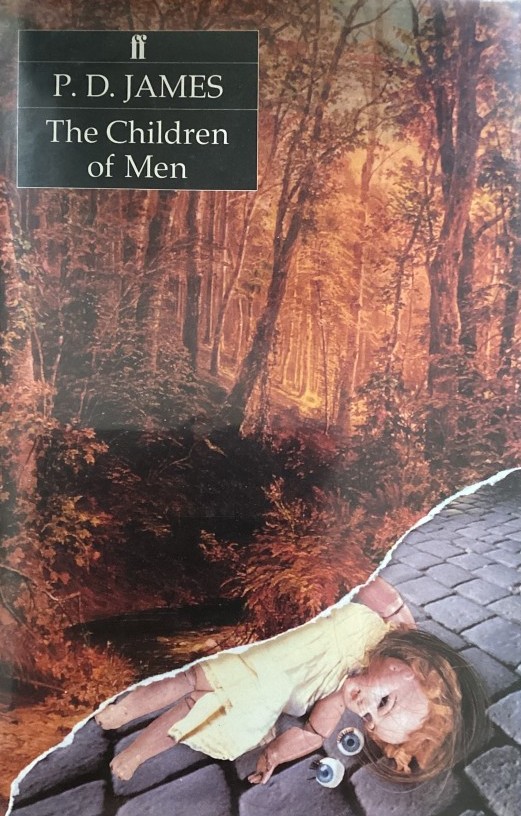Inspiring Older Readers
 posted on 23 Jun 2024
posted on 23 Jun 2024
The Children of Men by P.D. James
Fans of P.D. James are more likely to think of her as a crime or thriller writer rather than a writer of dystopian fiction but in 1992 that’s exactly the territory she stepped into with The Children of Men.
I’ll say right from the outset that I found this an odd read – mostly I think because although it is set what was then the future 2021, it has a distinct and slightly anachronistic atmosphere of the late 1950s.
When the book opens we discover that no child has been born for 25 years and humanity is on an inevitable pathway to extinction. As might be expected, this has created all sorts of social disjunction. The final generation of children known as Omegas are treated almost as gods and behave accordingly; older people are encouraged into acts of mass suicide known as the Quietus; desperate women unable to bear children substitute pets and dolls to treat as their own infants; and, immigrants (known as Sojourners) are brought in to do all the heavy dirty work.
The story is told primarily through the experiences of academic, Theo Faron and utilises his diary entries in telling the tale. Theo is the cousin of the man who has seized power as the Warden of England and the two had been close for many years. When Theo gives up his role as advisor to the Warden, the two drift apart and Theo opts for an anonymous existence.
But his previous closeness to power makes him a target for a dissenting quasi-Christian pressure group called The Five Fishes, who approach him to speak with the Warden in the hope that Faron can lobby for a return to more democratic government. He’s initially reluctant but an experience of witnessing a secret Quietus persuades him to try. He’s also finding himself more and more protective of one of the Five Fishes, the woman who first made contact with him and who may be the ultimate saviour or hope of salvation for the human race.
I’m not going to dig deeper into the plot because that would mean flagging up some spoilers for those who haven’t read it. However, despite the fact that James is a writer capable of great passages of prose and handles internal monologues beautifully, the longer the book goes on, the less convincing it is. I find myself in agreement with Paul Taylor in his review of the book for The Independent when it was released in 1992:
“When describing Theo's growing love for the young woman, James's normally model prose becomes gushy and stilted, robbing it of reality..”
I closed the book with a sense of disappointment because there were some remarkable and unsettling moments in the book but they ultimately deflate in the face of a contorted Christian allegory and the consequent unlikely character development.
There’s a not very good movie that you can watch but if you want the best bits, you’ll want to read the book. Paperback copies aren’t hard to find or expensive.
Terry Potter
June 2024